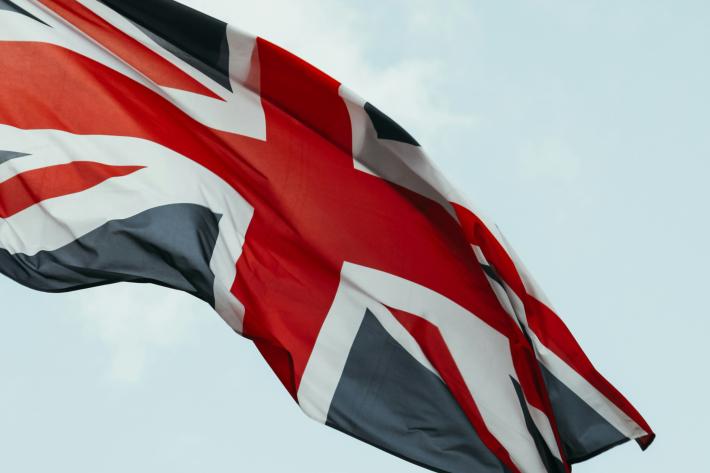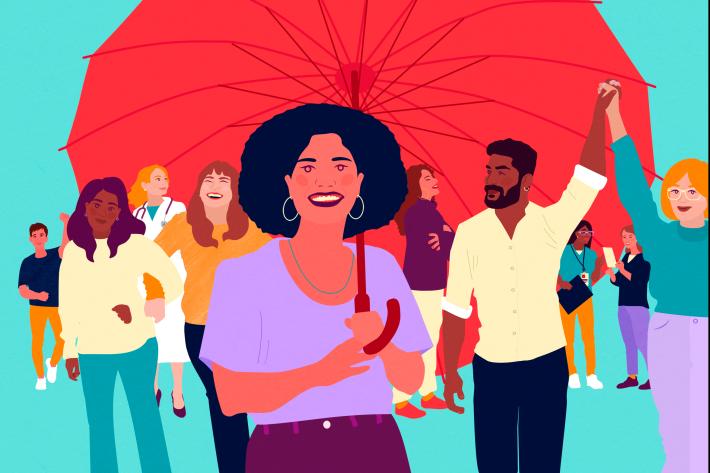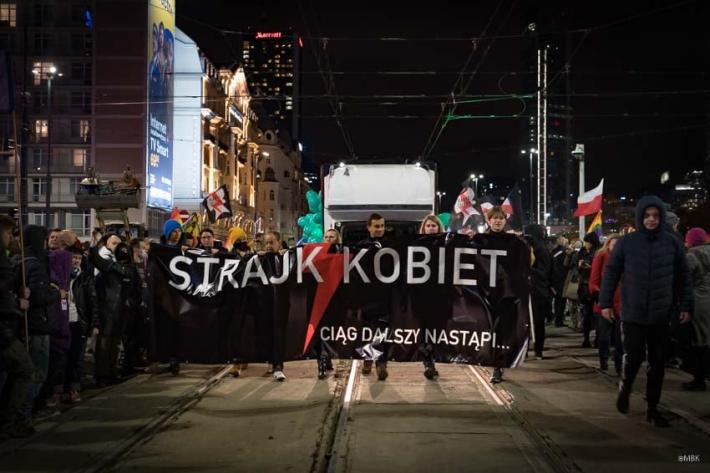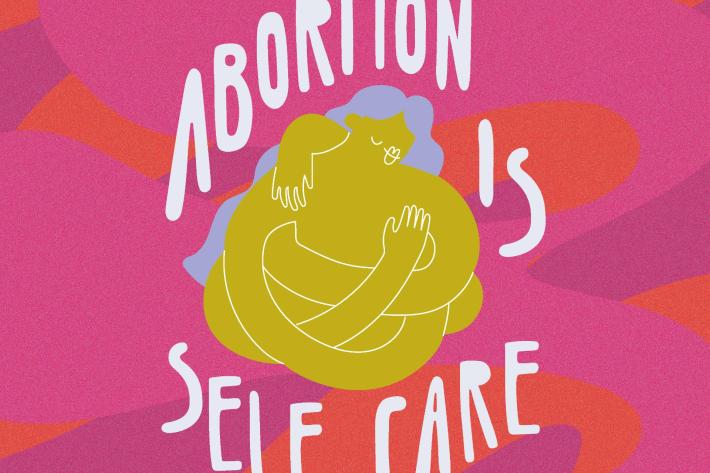
Spotlight
A selection of news from across the Federation

European Commission's new Women's Rights Roadmap includes SRHR—Now we need action
On 7 March, the EC released a new political declaration committing to uphold and advance women's rights. We welcome the inclusion of SRHR and other key topics. Now impactful actions are needed.
Filter our news by:


| 11 May 2021
A vote for women's health, safety and freedom in the EU (statement)
On the tenth anniversary of the Istanbul Convention - the most far-reaching international legal instrument to set out binding obligations to prevent and combat violence against women - the European Parliament Women’s Rights and Gender Equality Committee (FEMM) voted today in favour of the report presented by MEP Predrag Fred Matić on “the situation of sexual and reproductive health and rights in the EU” by 27 votes in favour. This resolution is the first European Parliament Report specifically dedicated to SRHR in almost 10 years. “The report provides an in-depth analysis of SRHR, recognising that SRHR is not only a human rights issue; it is also intrinsically linked with gender equality, women’s empowerment and combating gender-based violence. The report also provides a way forward on how the EU can deliver on reproductive freedom, safety and dignity for all”. – Caroline Hickson, Regional Director of the International Planned Parenthood Federation European Network (IPPF EN). The report gives a high level of political importance to SRHR at EU level at a crucial time, with challenges in accessing the whole range of SRHR being compounded by COVID-19 measures and some Member States backsliding on women’s rights, gender equality and SRHR across Europe and globally. “SRHR are at the core of several EU competency areas, including health, gender equality and non-discrimination, combating gender-based violence, fundamental rights and the rule of law. The EU is a longstanding SRHR supporter in its development and human rights policies and needs to safeguard SRHR both within and outside the EU for everyone.” – Cécile Vernant, Head of EU Advocacy at Deutsche Stiftung Weltbevölkerung (DSW). The Report has been tabled for a plenary vote at the European Parliament in June. EPF Secretary Neil Datta added: “Europe has a responsibility to take up a global leadership role on these issues, and this vote today is an important first step. It is crucial that we continue to work vocally in support of women’s rights, reproductive freedom and gender equality, and a positive result in the plenary will send a strong signal that MEPs are fully committed to protect and promote SRHR in the EU.”

| 10 April 2020
Polish ruling party exploits the current health crisis to undermine women and young people’s safety
Amid the Covid-19 pandemic, bills banning abortion care in practice and endangering young people by criminalizing relationship and sexuality education are set to be voted in the Polish Sejm on 15 and 16 April 2020. The ultra-conservative ruling party is taking advantage of the enormous hardship faced by Polish people to continue its relentless series of attacks on women and young people’s safety and wellbeing. People are sick, domestic violence is growing, one million jobs have been lost, yet the government adds to the burden of lack of social supports. The Polish law on abortion care is one of the most restrictive in Europe. Abortion is only lawful to safeguard the life or health of women, in situations of severe fetal anomaly or where the pregnancy results from rape or incest. In practice, 98% of legal abortions in Poland are performed on severe fetal anomaly grounds. During COVID-19 times, with travel restriction in place, hospitals overwhelmed by the health emergency, many from the medical staff already denying care based on personal beliefs or convenience, women’s options are drastically reduced. This proposed bill would result in a total abortion ban in practice, forcing women and families to go through pregnancies against their will in case of fatal fetal abnormality at a time of dramatic economic instability with no social support from the state. This shows how little women’s lives and dignity are valued by the Polish ruling class. The bill would also gag doctors by restricting what they can say to their patients about the condition of the fetus, violating patients’ rights to information. The change proposed by this bill is permanent and will place women’s health and lives at risk. “We know that when women and girls cannot access abortion care, in their desperation, they will resort to taking matters into their own hands, often with tragic consequences. Domestic violence is rising sharply, and families are stretched to the limits of their endurance. It is the moment when we most need to ensure we provide all the care that our societies need” said Caroline Hickson, IPPF EN Regional Director. The second bill would result in a complete ban on teaching relationship and sexuality education, sharing evidence-based information on the Internet, as well as forbidding doctors from providing contraceptive care to young people under 18. Those who work to protect young people by giving them information about healthy relationships, intimate life and prevention of violence could face a 3-year prison sentence under this draft bill. The only source of information young people could end up with is pornography and religious doctrines. UNESCO guidelines underline that education addressing equality between men and women and focusing on consent can reduce intimate partner violence. Why is this not a priority when violence against women is endemic and we know is even aggravated during the lockdown? “The timing of these bills is dodgy. As public protests cannot take place due to the measures put in place to fight the pandemic, women are silenced. The medieval forces behind these proposals know massive protests would have been organized across the country to fight these draconian bills. Enough is enough” said Irene Donadio, IPPF EN Senior Adviser. We call on Members of Poland’s Parliament to listen to the voices of women and families across Poland, to protect women’s safety and young people’s health and to reject these regressive bills. The Polish government must prioritise people’s health and wellbeing, democracy and the rule of law. Exploiting the health crisis to attack women’s health care is reckless, cruel and a guarantee of aggravated human suffering. For more information or an interview please contact: Irene Donadio, Senior Adviser at IPPF EN, [email protected], +32 491 17 19 390

| 15 November 2019
European Parliament condemns Polish bill that would criminalise relationship and sexuality education
As the International Planned Parenthood Federation European Network (IPPF EN), working to defend sexual and reproductive health and rights including relationship and sexuality education, we strongly welcome the European Parliament's (EP) resolution on the Criminalisation of sexual education in Poland - voted through by 471 MEPs. The resolution condemns the Polish draft law, that would criminalise the provision of information on sexuality to minors, including on contraception, the prevention of teenage pregnancies, the prevention of STDs including HIV/AIDS, information on sexual orientation and gender identity, and equality, respect and consent in relationships. The EP resolution reaffirms that relationship and sexuality education is enshrined in human rights law. It highlights that sexuality education is essential to create a positive, respectful and safe approach to relationships and sexuality, free from coercion, discrimination and violence; and has a positive impact on gender equality, including transforming harmful gender norms and preventing gender-based violence. Alternatively, a lack of information risks the safety and well-being of young people. For more information, please find here IPPF EN’s statement on the draft law.

| 16 October 2019
Morally bankrupt Polish bill undermines children’s safety and women’s protection from violence
Today the Polish Parliament deliberates a bill that will endanger young people in Poland, threatening their emotional, physical and social wellbeing by censoring information on sexual and reproductive health and prevention of sexual violence. It is no surprise that the author of this morally bankrupt initiative is the fundamentalist organisation Ordo Iuris, as it will particularly hurt and harm young women and girls, consistently their target of attack. The promoters of this medieval bill want to censor and punish those who care for children’s health and women’s safety. They would see 3-year prison sentences imposed on anyone who works to protect young people through educating them about healthy relationships, intimate life and prevention of violence. This is an utterly irresponsible proposal in a digital era where it is not possible to control what information young people see and how they interpret it. Children as young as nine are getting their first information on intimate relations from internet pornography. Violence against women and girls is endemic all over the world; in Poland 4.5 million women experience psychological violence at the hands of their current partners or husbands; and 2 million women experience physical or sexual violence. Parents everywhere want to protect their children as they grow into adulthood and ensure they have happy and healthy lives. In this they urgently need to be supported by the wider community, including schools. Various studies demonstrate that education addressing equality between men and women and focusing on consent can reduce intimate partner violence. Yet, just when such support is most needed, this bill seeks to rip the rug from under the feet of Polish parents and enable the state to abdicate its responsibility to protect the health and safety of its citizens, particularly women and young people. The intention of the bill closely mirrors a Russian law from 2012 that has forbidden all information on sexuality education, making it impossible for teachers to help reduce teenage pregnancies and rates of HIV. This would be a tragic example for Poland to follow. Irene Donadio, Senior Lead for Partnerships and Strategy at IPPF European Network, said: “The ideologically driven progenitors of this punitive bill clearly don’t care at all about the real challenges that parents, children and society face. The times we live in are full of new dangers, and governments should be protecting and supporting young people to develop the skills needed for healthy intimacy throughout their lives, helping to stop an epidemic of violence directed at women. It sends a shiver down my spine that there are people trying instead to drive girls and boys back into a world of ignorance and fear. It is also revealing that an initiative ostensibly intended to prevent paedophilia does not propose any measure that would tackle violence such as that perpetrated by the Catholic Church in Poland’s biggest child sexual abuse scandal. IPPF EN urges the Polish Parliament to stand up for children’s health and wellbeing instead of ripping away essential protections." *** For more information, contact [email protected], +32 (0)491 719 390

| 31 March 2017
How sexuality education is empowering young people with learning disabilities in Bulgaria
The town of Kazanlak, at the foot of the Balkan Mountains, is the centre of Bulgaria’s famous rose oil industry. Maria Gineva and Veska Marakjieva run four centres there for young people with special needs, including learning disabilities. Both have taken part in training sessions on sexuality education organised by IPPF’s Bulgarian member association BFPA as part of the ‘Keep me Safe’ project. Maria tells the story of a teenage couple with learning disabilities who were in love. “They didn’t really know about sex, about how it worked, and how to protect themselves. So we started to work with them, discussing sexuality, feelings and how and where it’s appropriate to express them. “Previously they had been kissing all the time in public spaces. After these sessions we agreed on rules on where they could go, and gave them a private space. Their parents hadn’t talked to them at all about sex. We spoke to the parents too, to encourage them to speak to their children and respect their need for space. The project is helping us find the right way to talk to these young people.” Maria and Veska believe that the project can make real changes to the lives of young people with learning disabilities by equipping them and their parents, as well as others involved in their care, to navigate the tricky waters of puberty and developing sexuality. Before Keep Me Safe, explains Veska, “we didn’t focus on these issues, even though the young people were literally growing up before our eyes.” The staff of the centers had tried instinctively to talk to them about issues like personal boundaries and masturbation in communal spaces, and there was some work on preventing sexual abuse. “But we hadn’t thought of it as something where we needed a concrete policy,” adds Maria. This has now changed, and a new policy is being rolled out. It is clear from the experiences of Maria and Veska and other professionals caring for young people with learning disabilities in Bulgaria that parents have a crucial role to play in empowering them when it comes to sexuality and prevention of sexual abuse. But this is also an extremely difficult subject to broach in a country where discussing sexuality in general is taboo, and sexuality education for mainstream children is woefully inadequate. Reactions from parents of young people with learning disabilities to the prospect of sexuality education workshops have ranged from questioning the need to discuss sex with their children, to embarrassment, curiosity and gratitude. One mother who attended a BFPA workshop in the town of Lovech described herself as “very happy – this will give me the confidence to talk to my son about these issues. He is 21. Before he didn’t know who he could talk to when he was in love, he was looking for information on the internet.” Veska, herself the mother of a child with a learning disability, recalls the first session she ran with parents. “We advised them to try and give their children more privacy, and stop hugging them like they are toddlers when some of them are 30 years old. We tried to make them understand that this puts their children at risk because they think hugging all the time is the norm.” She laughs as she adds that she is trying to get into the habit of just kissing her son on the cheek. “The impact on the young people themselves can be greater happiness,” says BFPA Executive Director Radosveta Stamenkova, when asked what the project will mean in the longer term. She has been pleasantly surprised by the strong demand from organisations involved in the direct care of these youngsters, travelling with the BFPA team to different towns around the country to lead additional workshops. Radosveta believes that Keep me Safe’s visual tools with their simple language can also be useful for reaching out to other vulnerable groups, e.g. younger children in the mainstream, new waves of refugees escaping conflict in the Middle East, and Bulgaria’s Roma community, of which 20% is illiterate. Veska confirms that in Kazanlak, which has a large Roma population, the project is already being used more broadly: “We did several sessions with teenage mums, mainly Roma, and we realised that they just didn’t know their own bodies at all, didn’t know the risks of early pregnancy, could not make a proper assessment of healthy behaviour and risks.” But a recurring theme in conversations with all those who are excited about the potential of Keep me Safe in Bulgaria is the lack of mandatory comprehensive sexuality education in mainstream schools. “We have been fighting for this for 20 years. It pains me physically that it is still not there,” adds Radosveta, citing a recent case that reached notoriety when a teenage mother in Kazanlak dumped her baby in a dustbin. When the media interviewed an adolescent boy who went to the same school and asked him to name one sexually transmitted infection, he said “Ebola”. --- Keep me Safe is a two-year project that aims to empower young people with learning disabilities across Europe to protect themselves against sexual abuse and violence. It is funded by the European Commission Daphne III Programme. You can read more about the work in Bulgaria here.

| 08 December 2017
Y-SAV envisions a Europe free from sexual violence
The Y-SAV project led by Rutgers WPF, the Dutch IPPF member, is an excellent example of how a strong centre of expertise on sexual and reproductive health and rights can promote change on all levels. From in-depth research to effective policy-making and on-ground activities Y-SAV’s work stands out when it comes to improving the lives of young Europeans who counter sexual violence. As you read this, research and country reports are translated into concrete actions by policy makers, and around Europe, young advocates speak out for gender equality and against sexual violence. Are we failing to address the reality and the real needs of young people? This is the question that alarmed Rutgers WPF, as study after study provided similar results: sexual aggression and victimization is highly prevalent among young Europeans. In a number of EU countries, a third to half of reported sexual assault cases are of young people, primarily young women – meaning that young people's sexual health and sexual rights are strongly endangered. These alarming findings led to the initiation of Y-SAV, a three-year project on Youth Sexual Aggression and Victimization co-funded by the European Union. Since its introduction, Y-SAV has been tackling youth sexual aggression and victimization on several fronts. This starts with making research comparable across countries and bringing scientists, policy makers and health and education experts together. Young advocates are taking the research findings to a concrete level, discussing them with policy makers and their peers and providing peer-to-peer education. The goal is to see a Europe where every level of action aims at the best possible response to sexual aggression experienced by youth. Gosia’s story from Poland: Young activists combat sexual aggression and victimization “During the summer of 2013, Y-SAV supported two youth led activities: YouAct, which is a group of young European sexual rights advocates, and Ponton, our project in Poland. The name Ponton comes from our volunteer peer educator group, Ponton Group of Sex Educators. We wanted to encourage young people to speak out against Youth Sexual Aggression and Victimization (YSAV). We felt frustrated as in Poland, over 70% of teenagers have experienced some kind of victimization, but the government has not taken concrete measures to prevent this phenomenon. The main goal of our project was to engage young people so that action would be taken by young people for young people. We asked an all-girl hip hop group Rymy w Sercu to create a song about sexual violence to spread the message in a way that would get to young people – and they did an amazing job! You can see their video ‘Take a stand’ here. (Remember to turn on ‘captions’ for subtitles!) Our school workshops inspired young people to come together to rally against sexual violence. They created slogans, photos and a website. It was great to see students being so active. Media and culture fuel negative gender stereotypes and influence the way sexuality and intimate relationships are seen. We need comprehensive sexuality education to fight those stereotypes and convey accurate information. As one of the participants said, “This was the first time someone talked with us about sexual violence.” “I think that if in every school every student could participate in such workshops, more people like me would open up to discussions about sexuality - the issue is an essential part of every human being.”
















